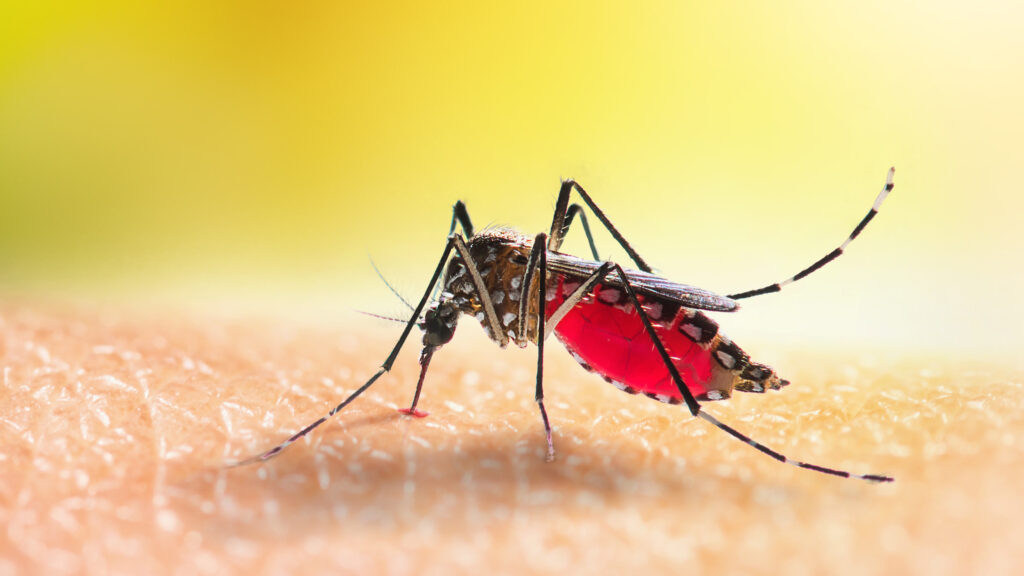By Agustin Rivas, MD
It was 10 a.m. on a Monday when a young patient entered my office, screaming and complaining of the worst headache of her life. She described feeling as though her bones were breaking and had a dangerously high fever. This young patient had contracted dengue fever during a recent trip to Cuba.
As a pediatrician in a low-income area of Miami, I am deeply concerned about the increasing threat of mosquito-borne diseases, particularly among children. My concerns are heightened by the frequent travel between Miami and Cuba, where dengue fever is prevalent.

Climate change, with higher temperatures and increased rainfall, is making Miami a more suitable habitat for mosquitoes. This exacerbates the problem, as two species — Aedes aegypti and Aedes albopictus (Asian tiger mosquito) — are capable of transmitting viruses such as dengue, Zika and chikungunya. These infections, which can be particularly dangerous for children, are becoming more common in our community.
The symptoms of pediatric dengue can include high fever, severe headache, pain behind the eyes, joint and muscle pain, rash and mild bleeding (such as nosebleeds or easy bruising). In some cases, dengue fever can progress to a potentially life-threatening form called severe dengue or dengue hemorrhagic fever, which can cause bleeding, organ failure and death.
Given these alarming facts, it is imperative that we take concrete steps to protect our children from mosquito-borne diseases. Here are several specific actions that can make a significant difference:
Community education and awareness: Launch comprehensive education campaigns to inform the public, especially parents and guardians, about the risks of mosquito-borne diseases. Teach them how to recognize symptoms early and the importance of seeking medical attention promptly.
Mosquito-control programs: Strengthen mosquito-control efforts by increasing funding for local health departments to implement effective mosquito surveillance and eradication programs. This includes regular spraying of insecticides in high-risk areas and eliminating standing water where mosquitoes breed.
Personal protection measures: Encourage the use of protective clothing, insect repellent and mosquito nets, especially for children. Schools and day care centers should be equipped with screens on windows and doors to prevent mosquito entry.

Travel precautions: Advise families traveling to regions with high rates of mosquito-borne diseases to take preventive measures such as using insect repellent, staying in accommodations with air conditioning or screened windows, and avoiding outdoor activities during peak mosquito activity times.
Vaccination and medical research: Advocate for and support research into vaccines for mosquito-borne diseases. While vaccines for diseases like dengue are in development, continued investment is crucial. Additionally, ensure that health care providers are equipped with the necessary resources to diagnose and treat these diseases effectively.
Climate resilience planning: Collaborate with environmental and public health experts to develop strategies that address the impact of climate change on mosquito populations. This includes urban planning initiatives that reduce mosquito breeding sites and enhance the city’s resilience to climate-related health threats.
By implementing these targeted measures, we can significantly reduce the risk of mosquito-borne diseases and protect the health and well-being of all children in Miami. It is our collective responsibility to act swiftly and decisively to safeguard our community from these preventable diseases.
Agustin Rivas, MD, is a board-certified pediatrician in Miami. In Dr. Rivas’ private practice, he cares for low-income and homeless individuals. He also serves as the Education Committee Chair for the Florida Clinicians for Climate Action and is a 2024 Climate Health Equity Fellow with the Medical Society Consortium on Climate and Health.
If you are interested in submitting an opinion piece to The Invading Sea, email Editor Nathan Crabbe at ncrabbe@fau.edu. Sign up for The Invading Sea newsletter by visiting here.




People need to take responcebility for their actions. The spread of disease by insects is not their fault. The spread of disease rests with humans. Our first responce is to deploy chemicals that destroy ecosystems . Insects are essential to the ecosystem. Mosquitos larvae are an essential food source to many species of fish. Pesticides, herbicides and fertilizers devistates life. Just ask veterans of Vietnam. Control the population of the genus homo.